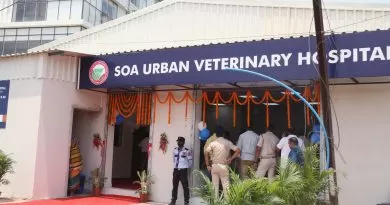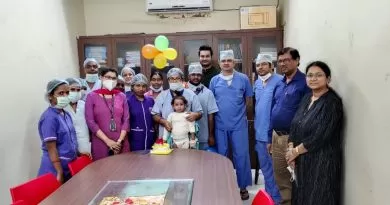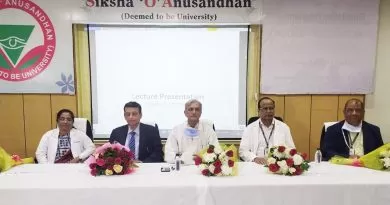SOA researchers develop innovative formulations for medical use

Bhubaneswar: Researchers at Siksha ‘O’ Anusandhan (SOA) here have developed simple, economical and innovative pharmaceutical formulations to treat various chronic medical conditions for which the Deemed to be University has signed technology licensing agreement with the National Research Development Corporation (NRDC) of the Ministry of Science and Technology recently for societal benefits.
The formulations developed are designed to treat dry eye, throat infections and mitigate long-term adverse events associated with cancer treatment, Prof Goutam Rath, professor at the School of Pharmaceutical Sciences (SPS), SOA’s faculty of pharmaceutical sciences, and leader of the research team, said.
The researchers at SOA-DBT BUILDER National Laboratory in SPS created an innovative formulation for people using various eye drops which contained preservatives. “The preservatives used actually lead to ocular discomfort or at times permanent visual deformities following prolonged use,” Prof Rath said.
“Our innovation offers a preservative free long lasting artificial tear produce which would reduce the dose and toxic adverse effects of preservatives for long term use,” he said adding it would remain effective for longer period and the user would not be required to use the drop frequently during the day.
Generally, the ocular drops used get wasted as hardly 10 per cent of a drop is retained. But in this case, the formulation would create a film which would prevent any such loss, he said.
Pointing out that the gargle medicines presently being prescribed for throat infections had limited impact for about 15 to 30 minutes requiring multiple use to alleviate discomfort, Prof Rath said the team had developed a mucoadhesive extended release gargle spray which offered long term effect of about four hours upon a single use.
The formulation would not only reduce the doses but also improve the drug efficacy, he said.
The research team has also developed artificial saliva which can be of great help to cancer patients who are on chemotherapy. The therapy often made the mouth of the patient to go dry as the saliva dried up, he said adding a nanotechnology approach was used to prepare the fast-dissolving, mucoadhesive thin films which could hold water for long duration and treat inflammation.
The other members of the research team included Prof Goutam Ghosh, Professor, Dr Biswakanth Kar, Associate Professor, Dr Debasmita Dubey, Research Scientist, Dr Vineet Kumar Rai, Project Scientist, Deepak Pradhan, Senior Project Associate, Dr Priyanka Dash, Assistant Professor, Dr Chandan Das, Assistant Professor, Jitu Haldar and Tushar Kanti Rajewar, both Junior Research Fellows, Ivy Saha and Ritu Mohanti, both Ph.D scholars.



